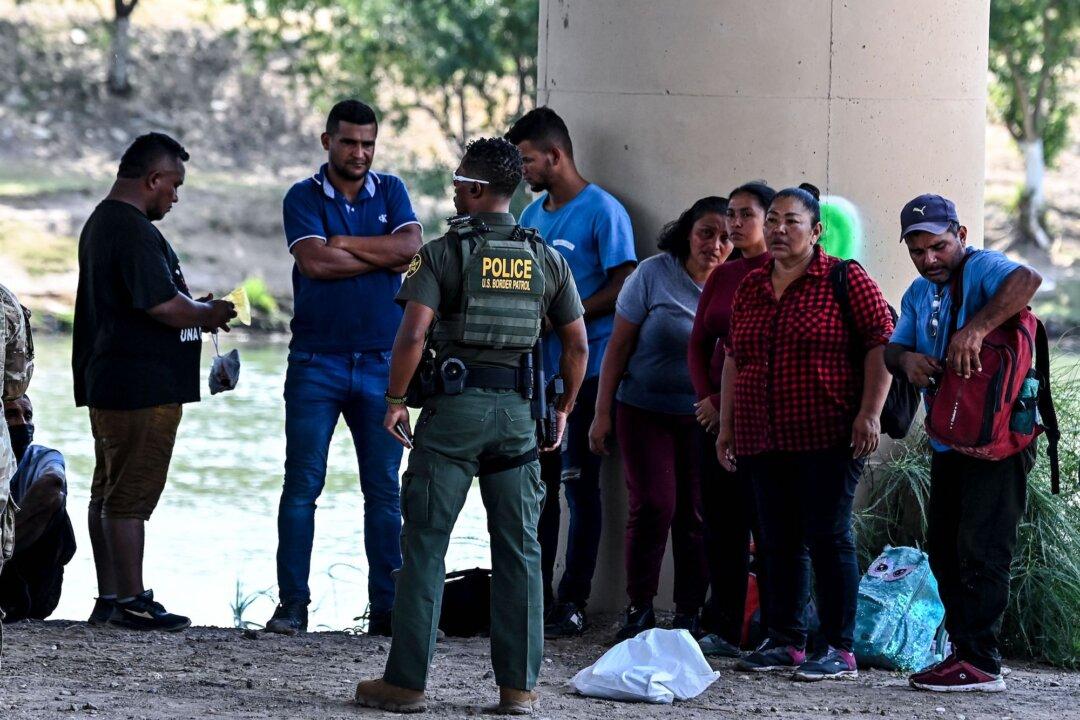Homeland Security Secretary Alejandro Mayorkas said on July 3 that his department will continue to warn migrants to not show up at the U.S.–Mexico border, as the current “Remain in Mexico” policy isn’t going away for “several weeks.”
Appearing on CBS’s “Face the Nation,” Mayorkas was asked whether the border enforcement agencies have the manpower and resources needed to handle “thousands of people who departed on Friday and are moving toward the U.S. border.” He responded by blaming “exploitative smugglers” who use “false information” to motivate migrants to illegally cross the border.





